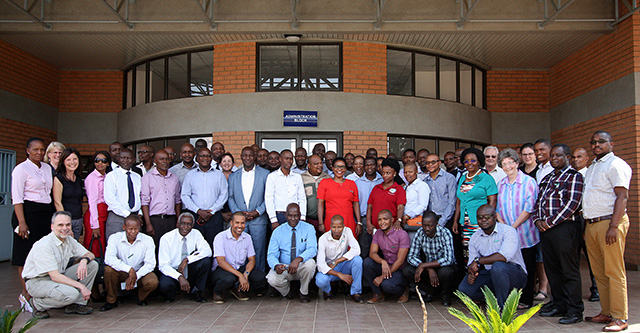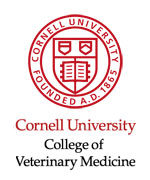Commodity-Based Trade of Beef and Enhanced Market Access:
The Vital Role of the Department of Veterinary Services
A DVS-hosted Workshop, in collaboration with AHEAD
Gaborone, Botswana, February 6-7, 2018
Download Workshop Summary
(PDF)

In February 2018, Botswana’s Department of Veterinary Services (DVS), in collaboration with Cornell University’s AHEAD (Animal & Human Health for the Environment And Development) Programme, hosted the above-mentioned training workshop. Additional support was provided by The Rockefeller Foundation and the Atkinson Center for a Sustainable Future.
The forum brought together over 60 participants including 40 senior DVS veterinary officers; other government stakeholders (Ministry of Agriculture and Food Security, Department of Wildlife and National Parks); the Botswana Meat Commission (BMC); representatives from farmers associations and the private sector; researchers, and colleagues from multilateral institutions. The workshop provided attendees with the opportunity to (i) better understand how commodity-based trade (CBT) of beef can be applied, (ii) enhance understanding of the diversity of technical elements and issues that impact FMD management, and (iii) consider approaches to FMD outbreak response in FMD-endemic areas that don’t hobble the beef sector.
Basis for the meeting:
In Botswana, wildlife conservation and livestock production are often in conflict due to the prevalence of animal diseases – especially foot and mouth disease (FMD) – that can be transmitted between wildlife and livestock. This situation restricts market access and constrains the success of livestock owners in the FMD-endemic red zone. In addition, attempts to meet international standards related to "freedom from disease" under currently applied policies for addressing FMD have had significant negative repercussions for free-ranging wildlife, largely related to disease control fencing.
Fortunately, new beef value chain-based approaches, known as commodity-based trade, have now been developed. Furthermore, in 2015 the international sanitary trade standards adopted by the OIE (World Organisation for Animal Health) were amended to remove certain restrictions on the trading of beef derived from areas where wildlife maintains FMD viruses. All of this provides a timely opportunity to rethink approaches to FMD management in FMD-endemic countries or zones.
|











